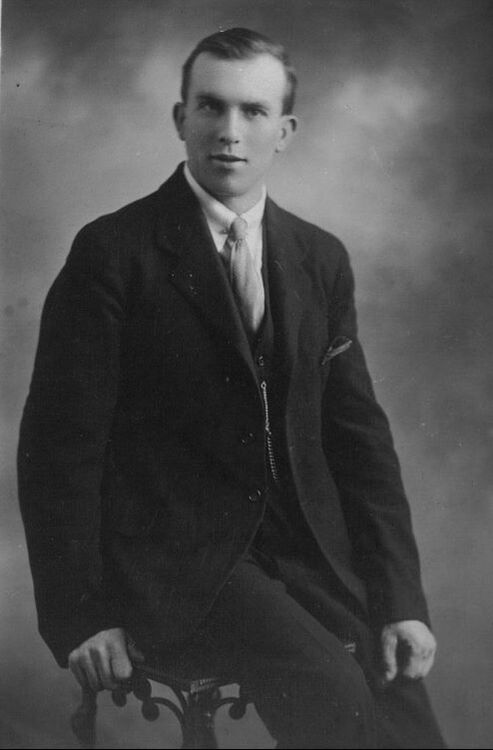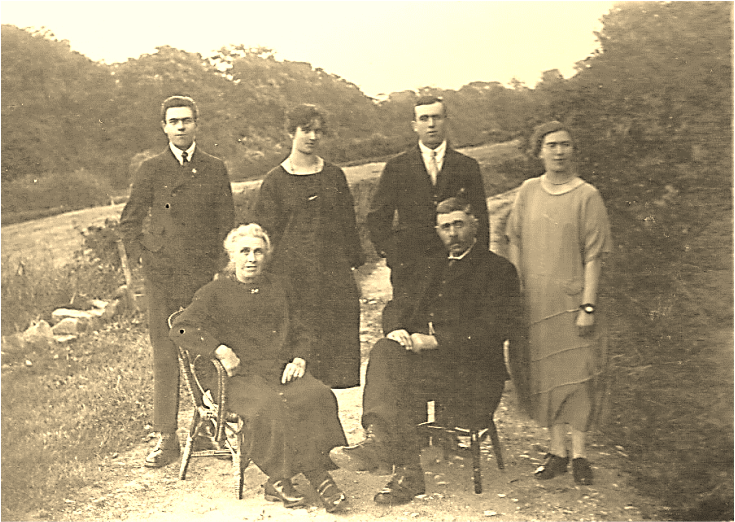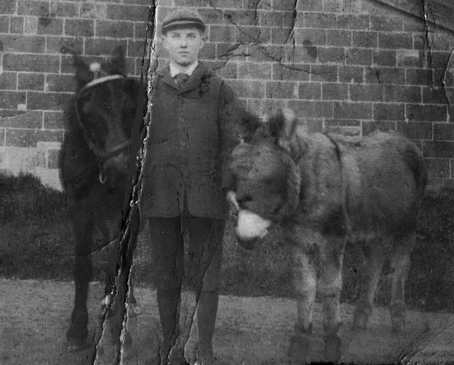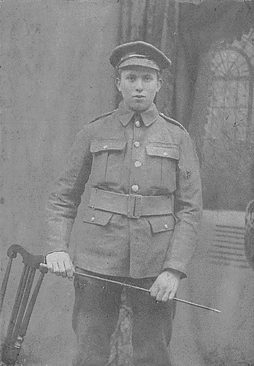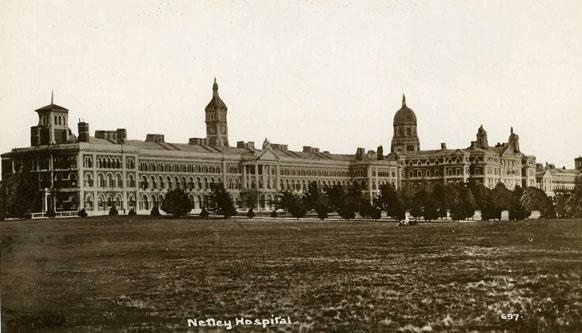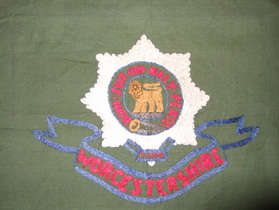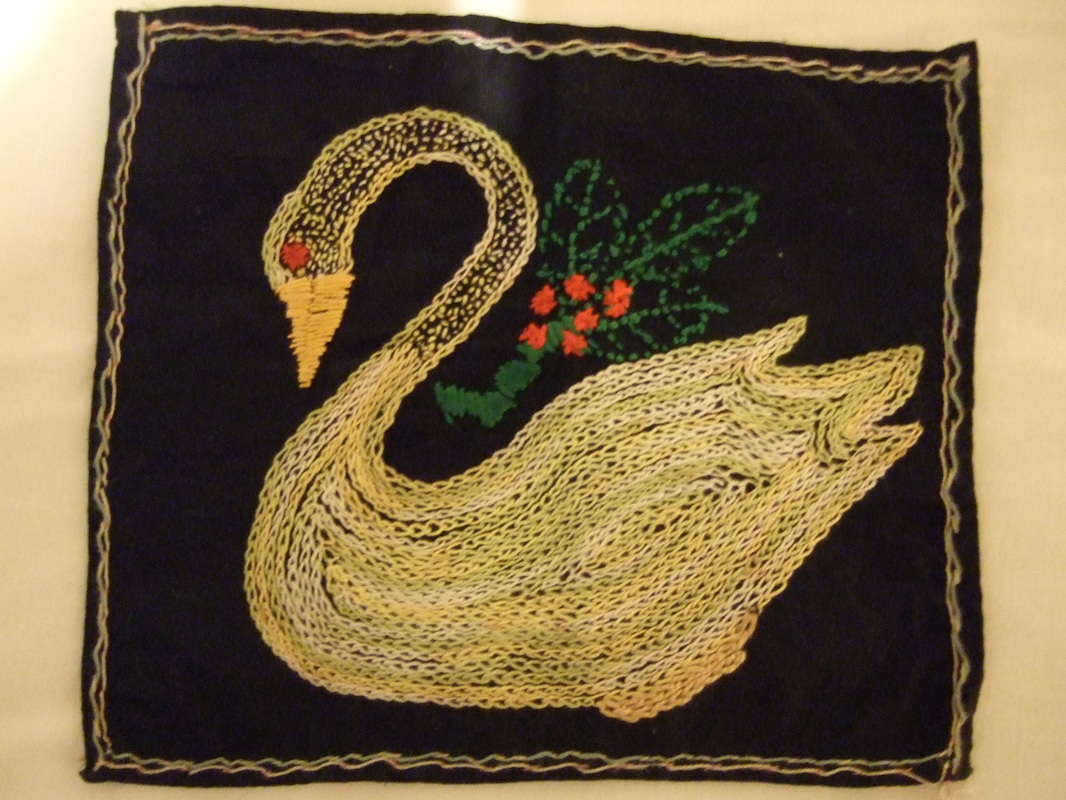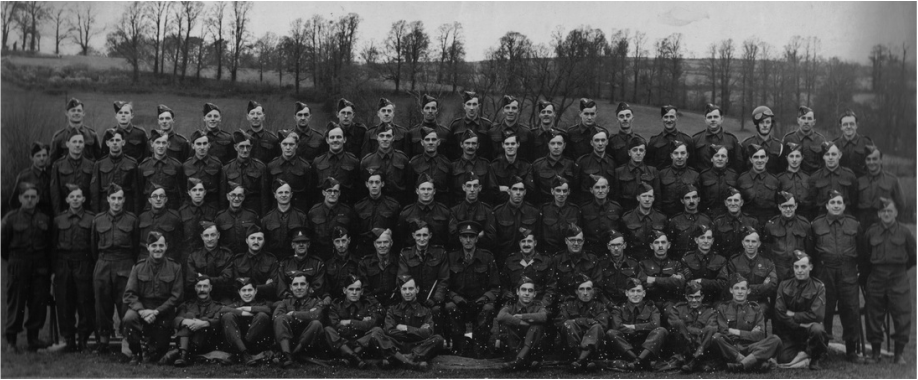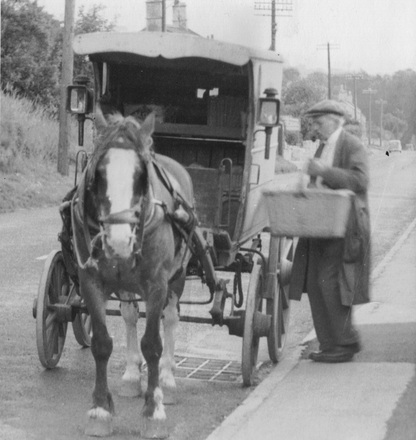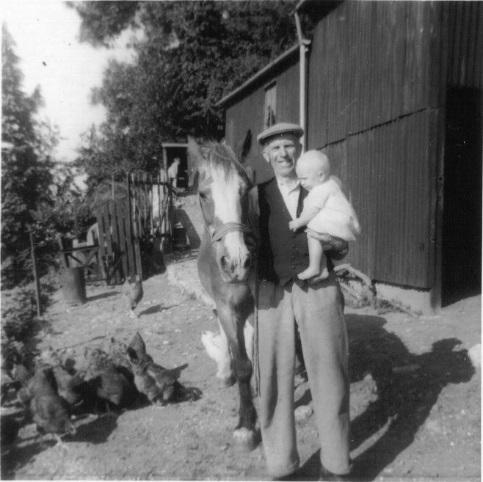|
Frederick (Ted) Edwin Hulbert Mark Jaworski January 2015 This is the story of an ordinary Box family, the Hulberts, and Ted Hulbert in particular, told through the research of his grandson, Mark Jaworski. It is the story of life in the 20th century and a reminder that this century suffered the horrors of both the First and Second World Wars. Young men, like Ted, who survived the Great War were often the very people who served on the Home Front in the Second. Although the two wars were very different in operational terms, the suffering of bereaved families was repeated in familiar ways. For mothers and famiies, the personal tragedy of wartime call-up of children and the trauma of bereavement or invalidity was often fresh in their minds. Many people suffered more years of hostilities than they enjoyed of peacetime. As well as commemorating the Great War, we recall that 2015 is the 70th anniversary of the end of the Second World War. All family photos courtesy Mark Jaworski |
My Grandfather Ted Hulbert was born in 1900 and lived in the cottages near the top of Henley Lane. He had two sisters and a brother. Sometime just before the First World War, the family moved to Mead Cottage in The Ley where they ran a Laundry and Market Garden business. From an early age Ted had a love of horses which he carried with him for the rest of his life. Working in the Laundry and Market Garden business he collected and delivered to the large houses in the area. At some point he also worked for the soap factory in Bulls Lane.
World War 1
The family history is unclear, and unfortunately his war records have not survived, but Ted joined the army under age at 17 sometime in 1916 - 17. With his love of horses he joined the 2nd Batallion 1st Wiltshire Yeomanry, which at that time was a Cavalry regiment.
His job would have been to take care of the horses, grooming, feeding and mucking out, this probably saved his life as many who joined up at that time joined the Infantry and were killed.
During the summer of 1917 a lot of the Cavalry regiments were mothballed, since their use had become limited. Around the beginning of September 1917, Ted and twenty of his comrades were transferred from the Wiltshire Yeomanry to the 2nd Batallion 8th Worcestershire Regiment. This was to increase the Infantry numbers due to the heavy losses from the previous months and ready for the Battle of Cambrai.
Ted was seconded to a Lewis Gun crew. The crews generally consisted of a gunner loader and two support soldiers who would help to carry the gun and also run back to the supply depots for ammunition. We assume, because of his age, he was one of the support crew.
The family history is unclear, and unfortunately his war records have not survived, but Ted joined the army under age at 17 sometime in 1916 - 17. With his love of horses he joined the 2nd Batallion 1st Wiltshire Yeomanry, which at that time was a Cavalry regiment.
His job would have been to take care of the horses, grooming, feeding and mucking out, this probably saved his life as many who joined up at that time joined the Infantry and were killed.
During the summer of 1917 a lot of the Cavalry regiments were mothballed, since their use had become limited. Around the beginning of September 1917, Ted and twenty of his comrades were transferred from the Wiltshire Yeomanry to the 2nd Batallion 8th Worcestershire Regiment. This was to increase the Infantry numbers due to the heavy losses from the previous months and ready for the Battle of Cambrai.
Ted was seconded to a Lewis Gun crew. The crews generally consisted of a gunner loader and two support soldiers who would help to carry the gun and also run back to the supply depots for ammunition. We assume, because of his age, he was one of the support crew.
Battle of Cambrai
The battle of Cambrai began on 20th November 1917. With the first major use of tanks, significant gains were made during the first few days but these became difficult to hold due to the lack of support troops. Consequently the Germans began to counter attack and push the British back.
His regiment was brought in near the Village of La Vacqueri, south of Cambrai and occupied captured German trenches, near a sunken road to defend against the German counter attack. From the Worcestershire regimental diaries we can pick up his story during the battle of Cambrai:
December 2nd 1917 with the dawn the enemy’s attack was resumed, German bombing parties worked up the slopes, they succeeded in establishing a foothold at 2 points in the line, two more attacks followed at intervals of half an hour. The enemy artillery fiercely bombarded the positions on the ridge with the fire growing heavier as the day wore on.
At 3.00 pm a dense wave of German infantry attacked, all along the line British rifles and Lewis guns opened fire. Many of the enemy fell but the remainder managed to fight their way into the trenches and break into the front lines. After sharp fighting the front line companies withdrew to their support trenches, after dark they reorganised and pushed forward and reoccupied their original positions. By daylight the Worcesters were relieved and withdrew into reserve positions.
It was during this time that Ted was seriously wounded in the hip. He lay all night in an open field unable to move. This was the night of his 18th Birthday. Ted was found in the morning, lying in the mud, by one of his Platoon mates from Swindon who carried him on his back to a first-aid post.
The battle of Cambrai began on 20th November 1917. With the first major use of tanks, significant gains were made during the first few days but these became difficult to hold due to the lack of support troops. Consequently the Germans began to counter attack and push the British back.
His regiment was brought in near the Village of La Vacqueri, south of Cambrai and occupied captured German trenches, near a sunken road to defend against the German counter attack. From the Worcestershire regimental diaries we can pick up his story during the battle of Cambrai:
December 2nd 1917 with the dawn the enemy’s attack was resumed, German bombing parties worked up the slopes, they succeeded in establishing a foothold at 2 points in the line, two more attacks followed at intervals of half an hour. The enemy artillery fiercely bombarded the positions on the ridge with the fire growing heavier as the day wore on.
At 3.00 pm a dense wave of German infantry attacked, all along the line British rifles and Lewis guns opened fire. Many of the enemy fell but the remainder managed to fight their way into the trenches and break into the front lines. After sharp fighting the front line companies withdrew to their support trenches, after dark they reorganised and pushed forward and reoccupied their original positions. By daylight the Worcesters were relieved and withdrew into reserve positions.
It was during this time that Ted was seriously wounded in the hip. He lay all night in an open field unable to move. This was the night of his 18th Birthday. Ted was found in the morning, lying in the mud, by one of his Platoon mates from Swindon who carried him on his back to a first-aid post.
The Inter-War Years
He was transferred back to England where he spent two years recovering at Netley Hospital, Southampton. It was here that he was taught embroidery in order to pass the time. The embroideries below are some of his work from that time.
After he had returned home to Box he met Elsie Wilkins.[1] She was working at Pickwick House, Corsham, with her mother, Ada Wilkins. They met when he was delivering and collecting laundry for his parents' business. They married and had a daughter, Glynice, my mother.
He was transferred back to England where he spent two years recovering at Netley Hospital, Southampton. It was here that he was taught embroidery in order to pass the time. The embroideries below are some of his work from that time.
After he had returned home to Box he met Elsie Wilkins.[1] She was working at Pickwick House, Corsham, with her mother, Ada Wilkins. They met when he was delivering and collecting laundry for his parents' business. They married and had a daughter, Glynice, my mother.
World War Two and Peacetime
During the World War 2 he was a sergeant in the village home guard and you can see him with the rest of Box village Home Guardsmen in the picture below.
During the World War 2 he was a sergeant in the village home guard and you can see him with the rest of Box village Home Guardsmen in the picture below.
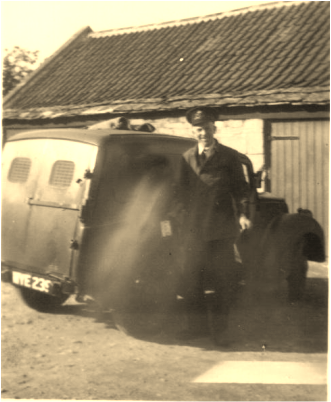
After the war he went back to his service in the village and he re-joined the GPO (General Post Office) where he had worked between the wars.
There is a splendid photo of him in 1937 at Box Post Office. Working for the Post Office was both a job and a public service and his official appointment on 21 December 1937 was a statement of his responsibilty and commitment to the village.
He continued to live and work in Box for the rest of his life and he was the village postman until he retired in 1965.
Right: On duty in the early 1960s with the village's Post Office van.
There is a splendid photo of him in 1937 at Box Post Office. Working for the Post Office was both a job and a public service and his official appointment on 21 December 1937 was a statement of his responsibilty and commitment to the village.
He continued to live and work in Box for the rest of his life and he was the village postman until he retired in 1965.
Right: On duty in the early 1960s with the village's Post Office van.
His love of horses continued and he helped Benny Drew, the village baker, for many years and kept two ponies in his field in The Ley.
Family Tree
Great Grandparents
In 1911 Frederick John Hulbert (b 1870), Railway Company ganger, lived at Henly Cottages with wife Frances Alice Salter (b 1865).
Children: Frederick Edwin (b 10 December 1900); Rosa (b 1902); Frances (b 1903); Worthy (b 1908)
Grandparents
Frederick Edwin (Ted) (1900 - 1968) married 1924 to Evelyn Elsie Wilkins (1901 - 1983)
Ted was appointed a full-time worker in the Post Office on 21 December 1937.
Parents
Walek Jaworski, born 1926 (Chylin, Poland) and Glynice Jaworski (nee Hulbert) born 1931 Box.
Great Grandparents
In 1911 Frederick John Hulbert (b 1870), Railway Company ganger, lived at Henly Cottages with wife Frances Alice Salter (b 1865).
Children: Frederick Edwin (b 10 December 1900); Rosa (b 1902); Frances (b 1903); Worthy (b 1908)
Grandparents
Frederick Edwin (Ted) (1900 - 1968) married 1924 to Evelyn Elsie Wilkins (1901 - 1983)
Ted was appointed a full-time worker in the Post Office on 21 December 1937.
Parents
Walek Jaworski, born 1926 (Chylin, Poland) and Glynice Jaworski (nee Hulbert) born 1931 Box.
References
[1] See article by Stella Clarke on the Wilkins Family
[1] See article by Stella Clarke on the Wilkins Family
